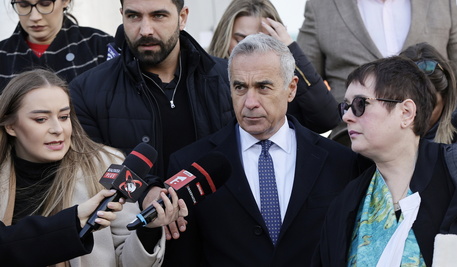(ANSA) - ROME, DEC 19 - The European Commission has opened
formal proceedings against TikTok for a suspected breach of the
Digital Services Act (DSA) in relation to TikTok's obligation to
properly assess and mitigate systemic risks linked to election
integrity, notably in the context of the recent Romanian
presidential elections on 24 November, which were won by the
pro-Russian, far-right candidate Călin Georgescu and
subsequently invalidated by the Romanian Constitutional Court.
This decision to open an investigation takes into account
information received from declassified intelligence reports by
the Romanian authorities, as well as third-party reports, the
Commission said in a statement.
The Commission has monitored the impact of social-media
platforms in elections throughout the EU and previously issued
guidelines for the platforms in order to increase due diligence
in election periods.
In the case of the Romanian presidential elections, the
Commission collected information from TikTok, the Romanian
authorities and civil society organisations. The platform's
policies on political advertising and paid political content, as
well as its recommendation systems, came under the scrutiny of
the Brussels authorities, in particular the risks linked to
coordinated inauthentic manipulation or automated exploitation
of the service.
Commission President Ursula von der Leyen stressed the need to
"protect our democracies from any kind of foreign interference"
explaining that the EU executive had taken action following
"serious indications that foreign actors interfered in the
Romanian presidential elections by using TikTok.
"Whenever we suspect such interference, especially during
elections, we have to act swiftly and firmly," she continued.
After the formal opening of proceedings, the Commission will
continue to gather evidence, for example by sending additional
requests for information, conducting monitoring actions,
interviews, inspections and requesting access to algorithms.
Such requests for information may require TikTok to provide data
and documents it has been obliged to retain on the basis of the
retention order imposed by the Commission on 5 December.
Coimisiún na Meán, the Digital Services Coordinator for Ireland
- TikTok's country of establishment in the EU - has been
associated to the Commission's investigation and will contribute
with its expertise and analysis to the case.
The opening of formal proceedings empowers the Commission to
take further enforcement steps, such as interim measures, and
non-compliance decisions. The Commission is also empowered to
accept any commitment made by TikTok to remedy the matters
subject to the proceeding.
Overall, Brussels aims to "better understand the vulnerabilities
in TikTok's systems, especially in light of the upcoming
elections in Croatia and Germany," explained a senior European
official.
The investigation is part of the Commission's wider work on
protecting democracy and raising awareness of hybrid threats.
"There is no formal attribution to Russia, but there is
certainly a manual, in which very well-known aspects of
potential Russian or third-country actors can be seen in the
background", they explained in Brussels. (ANSA).
EU probes TikTok over Romania presidential elections
Suspected violation of DSA, intelligence reports considered
